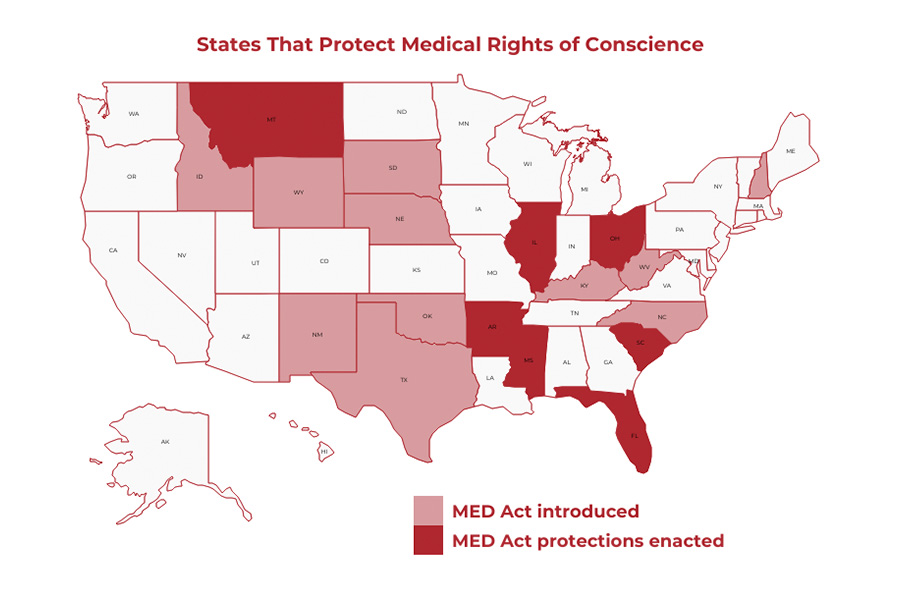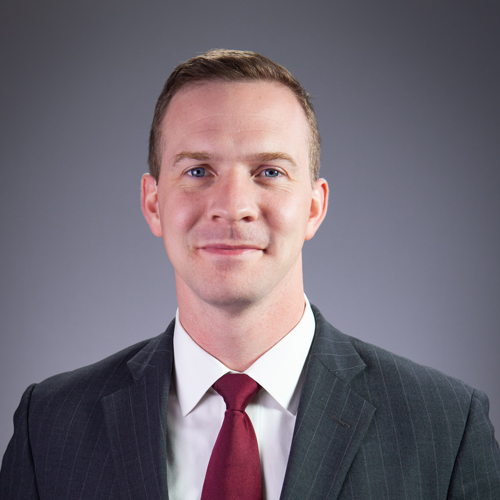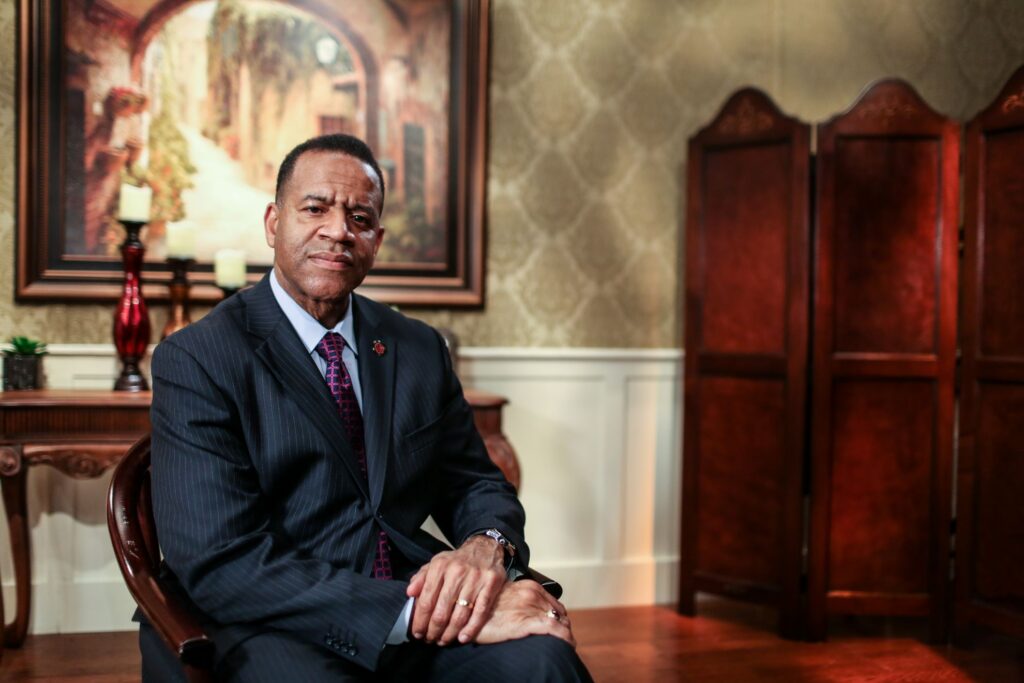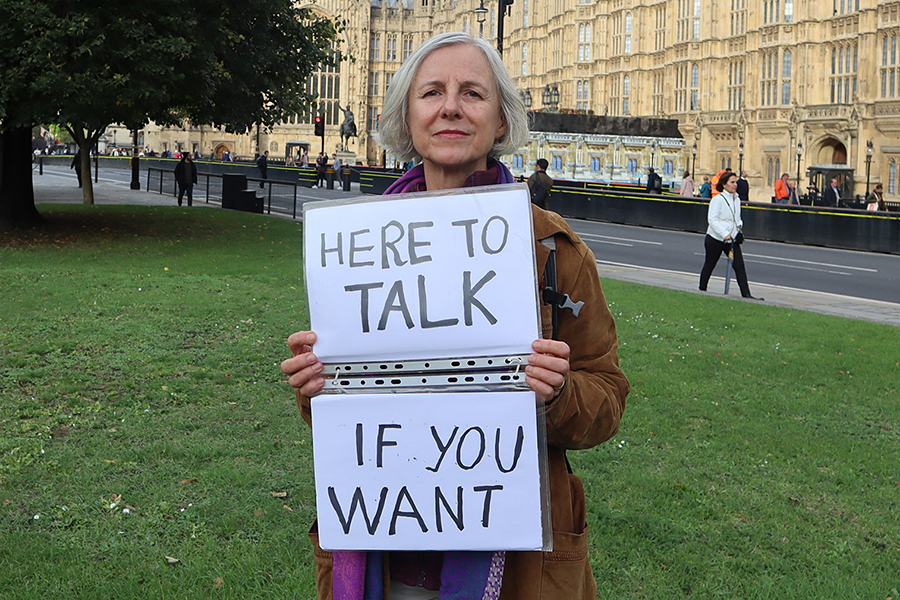
When Cathy Cenzon-DeCarlo was hired as an operating nurse at The Mount Sinai Hospital in New York City, she made it clear that she could not participate in abortions because of her Catholic faith. Cathy knows that all life is created by God and worthy of protection, and Mount Sinai expressed no concerns about her beliefs.
The hospital maintained a written policy allowing employees to choose not to participate in abortions, and Cathy filled out a form during the application process giving her the opportunity to decline participating in these procedures. She thought that would be the end of the story.
Fast forward almost five years, and Cathy was informed during an on-call shift that she must assist in a surgery that she initially thought was to treat a miscarriage. When she entered the surgery room, she soon realized she was being forced to help abort a live, 22-week-old baby.
Cathy tried to explain to multiple supervisors that she could not participate in the surgery, but they refused to listen. She was told that if she didn’t participate in the abortion, she would be charged with “insubordination and patient abandonment,” threatening her career and her family’s livelihood.
Because she needed to keep her job to provide for her family, Cathy decided to follow her supervisor’s orders even though she strongly opposed them. She was forced to watch the doctor remove the baby’s bloody limbs from the mother’s womb, and she had to pour saline on the baby’s dismembered body parts as part of her duties. Cathy had nightmares for years after witnessing this horrible act.
The need for conscience protections
Sadly, stories like Cathy’s are not uncommon. As health care becomes increasingly politicized, medical professionals are being forced to choose between their deeply held beliefs and their livelihoods.
Consider this:
- Among Christian medical students, 36 percent say they have experienced discrimination during medical school based on their moral, ethical, or religious beliefs, or have been pressured to violate those beliefs.
- One in 5 medical students say they have chosen not to practice in a certain field because of hostility toward their beliefs in that area of practice. Most of the time, these students were on track to become pro-life OB/GYNs who would have been able to provide critical care for women and their unborn babies.
- Nine out of 10 religious doctors, nurses, and other medical professionals say they would rather stop practicing medicine than violate their ethical, moral, or religious beliefs.
It’s simple: every American should have the freedom to operate according to their ethical and religious beliefs—and that includes doctors, nurses, and other medical providers. The Constitution protects their freedom as much as everyone else’s.
In fact, the freedom to live and work consistent with one’s conscience is at the heart of what motivates many who enter the medical field, a profession full of individuals who dedicate their lives to healing and “doing no harm.”
But while medical professionals gladly serve all people, many object to prescribing specific drugs—such as pills that induce abortion—or performing specific procedures—such as a medically unnecessary mastectomy for a teenage girl as part of a so-called “gender transition.” For many doctors and nurses, participating in these prescriptions and procedures violates their oath to “do no harm.”
Driving medical professionals out of their fields because of their beliefs not only violates their rights of conscience; it also jeopardizes patient care by exacerbating critical shortages in the medical field.
Thankfully, protecting conscience rights in the medical field is a growing national movement. States are stepping up and protecting their medical professionals from the exact situation Cathy faced.
In Illinois, pediatric nurse Sandra Rojas was suddenly informed she would have to help refer for and facilitate abortions after nearly 20 years of service in the Winnebago County Health Department. She chose to resign rather than violate her beliefs.
Fortunately, the Illinois Health Care Right of Conscience Act protects pro-life medical professionals from being forced to participate in abortions against their religious convictions. So when an Alliance Defending Freedom ally filed a lawsuit we funded on Sandra’s behalf, an Illinois trial court ruled in her favor. This is exactly the type of law that more states are adopting to protect the freedom of conscience.
Since 2021, five new states have passed laws that ensure medical professionals and organizations cannot be forced to participate in health-care services that violate their conscience. In many states, this legislation is referred to as the “MED Act.”
What does the MED Act do?
- It protects nurses, doctors, and the health-care institutions where they work from being mandated to participate in a specific procedure that violates their ethical or religious beliefs.
- It shields medical professionals from losing their jobs or facing criminal charges for exercising their rights of conscience.
- It enhances patient care by protecting whistleblowers who report violations of laws or practices that put patient health at risk.
The MED Act simply allows doctors, nurses, and certain other medical professionals to decline to perform procedures that violate their conscience. It’s specifically limited to conscience-based objections to particular health-care services. In other words, doctors can choose not to provide a particular health service to which they have a conscience objection, but they cannot refuse care to a person.
At its core, the MED Act is designed to ensure that doctors, nurses, and other medical professionals aren’t forced to leave their ethics and religious beliefs at the door when they serve their patients.
Regardless of your beliefs about the practice of medicine, we should all agree that those in the medical field should not be forced to participate in prescribing drugs and performing procedures that violate their core beliefs.
In the last three years, five states have stepped up to help preserve the rights of doctors and nurses, ensuring they can continue caring for all patients in a manner honoring their oath to “do no harm.” It’s a simple and reasonable protection for our health-care heroes, and they deserve nothing less. And by protecting the conscience rights of doctors and nurses, we are actually protecting the quality of care available to each of our families. After all—who wants a doctor or nurse without a conscience?
Where does your state stand?







